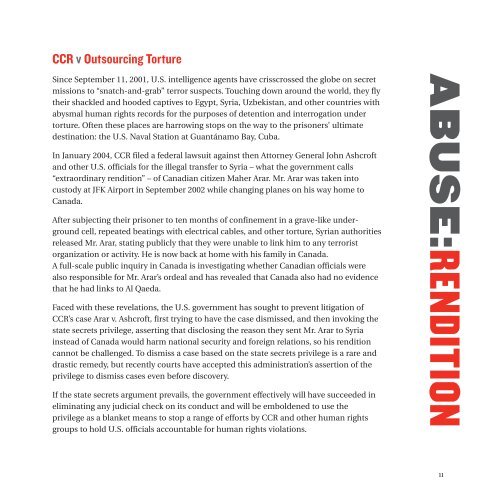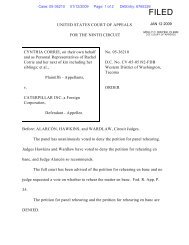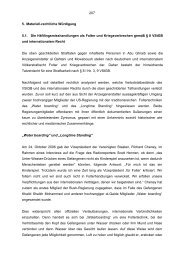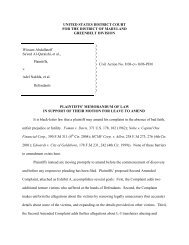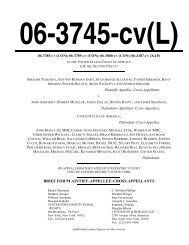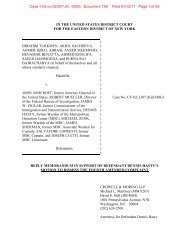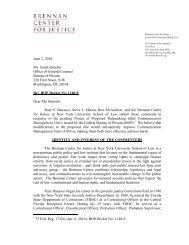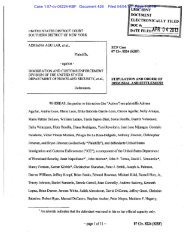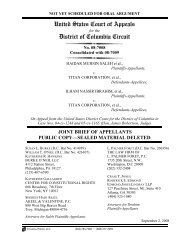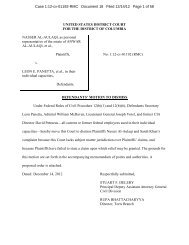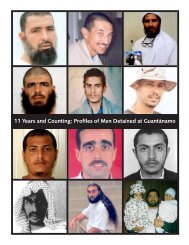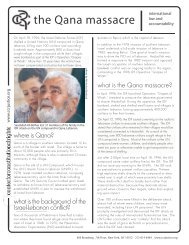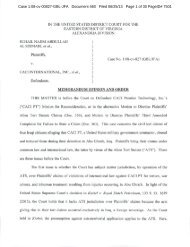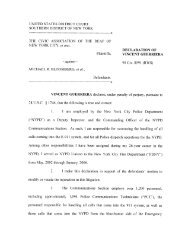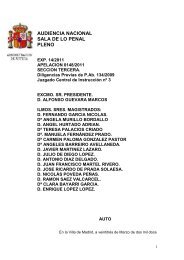CCR Annual Report 2005 - Center for Constitutional Rights
CCR Annual Report 2005 - Center for Constitutional Rights
CCR Annual Report 2005 - Center for Constitutional Rights
Create successful ePaper yourself
Turn your PDF publications into a flip-book with our unique Google optimized e-Paper software.
<strong>CCR</strong> v Outsourcing Torture<br />
Since September 11, 2001, U.S. intelligence agents have crisscrossed the globe on secret<br />
missions to “snatch-and-grab” terror suspects. Touching down around the world, they fly<br />
their shackled and hooded captives to Egypt, Syria, Uzbekistan, and other countries with<br />
abysmal human rights records <strong>for</strong> the purposes of detention and interrogation under<br />
torture. Often these places are harrowing stops on the way to the prisoners’ ultimate<br />
destination: the U.S. Naval Station at Guantánamo Bay, Cuba.<br />
In January 2004, <strong>CCR</strong> filed a federal lawsuit against then Attorney General John Ashcroft<br />
and other U.S. officials <strong>for</strong> the illegal transfer to Syria – what the government calls<br />
“extraordinary rendition” – of Canadian citizen Maher Arar. Mr. Arar was taken into<br />
custody at JFK Airport in September 2002 while changing planes on his way home to<br />
Canada.<br />
After subjecting their prisoner to ten months of confinement in a grave-like underground<br />
cell, repeated beatings with electrical cables, and other torture, Syrian authorities<br />
released Mr. Arar, stating publicly that they were unable to link him to any terrorist<br />
organization or activity. He is now back at home with his family in Canada.<br />
A full-scale public inquiry in Canada is investigating whether Canadian officials were<br />
also responsible <strong>for</strong> Mr. Arar’s ordeal and has revealed that Canada also had no evidence<br />
that he had links to Al Qaeda.<br />
Faced with these revelations, the U.S. government has sought to prevent litigation of<br />
<strong>CCR</strong>’s case Arar v. Ashcroft, first trying to have the case dismissed, and then invoking the<br />
state secrets privilege, asserting that disclosing the reason they sent Mr. Arar to Syria<br />
instead of Canada would harm national security and <strong>for</strong>eign relations, so his rendition<br />
cannot be challenged. To dismiss a case based on the state secrets privilege is a rare and<br />
drastic remedy, but recently courts have accepted this administration’s assertion of the<br />
privilege to dismiss cases even be<strong>for</strong>e discovery.<br />
If the state secrets argument prevails, the government effectively will have succeeded in<br />
eliminating any judicial check on its conduct and will be emboldened to use the<br />
privilege as a blanket means to stop a range of ef<strong>for</strong>ts by <strong>CCR</strong> and other human rights<br />
groups to hold U.S. officials accountable <strong>for</strong> human rights violations.<br />
ABUSE:RENDITION<br />
11


